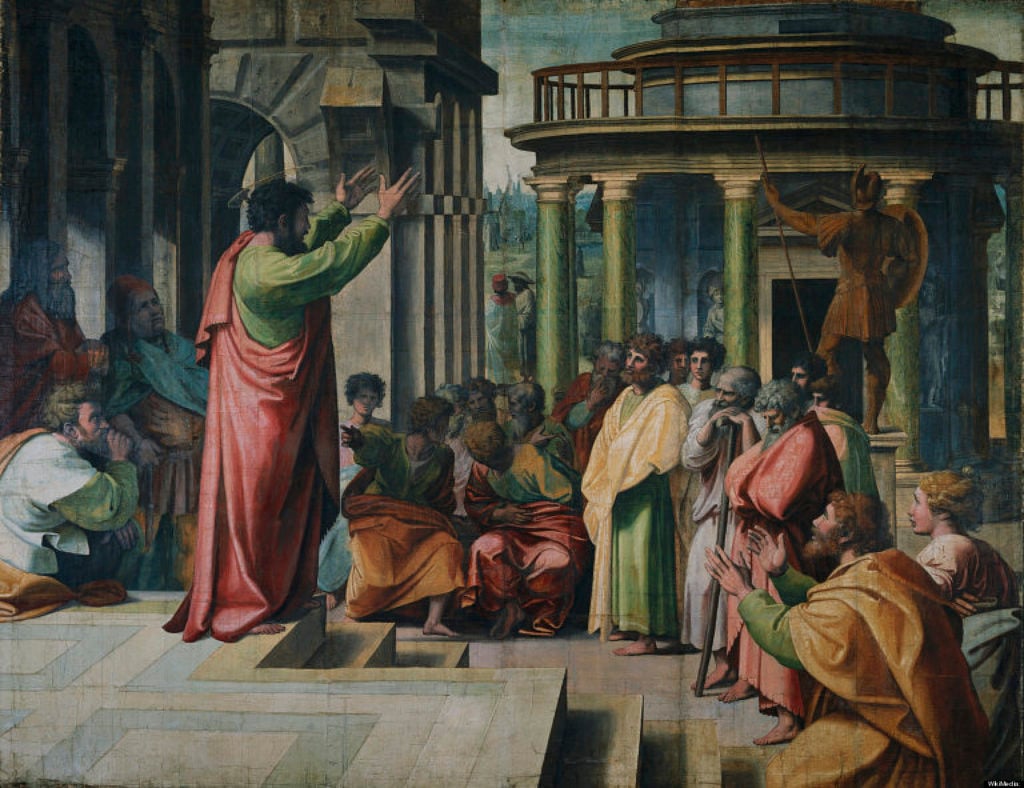“In the first century, Christians were crucified, burned, and thrown to the wild animals simply for proclaiming the name of Christ. This was a period of immense persecution, and if Christians wanted to survive, they had to hide out from the governing authorities.” While there is some truth in this statement, it is certainly an overstatement. Yes, Christians were persecuted, but in the first century, most persecution was local and sporadic.
While there is a temptation to overstate the evidence for persecution in the first century, there is also a pattern of critics who understate the evidence. In my recent book, The Fate of the Apostles, I make the case for the willingness of the apostles to die for their faith, which shows the depth of their sincerity. They really believed Jesus had risen from the grave, and they were willing to give their lives for it. This claim is strengthened if there is evidence that Christians were actually persecuted in the first century. So, what’s the evidence?
Biblical Evidence
- Jesus taught that his disciples would be persecuted: Jesus told his disciples to expect persecution and suffering for the sake of righteousness. He even warned them they would be killed, as Israel had killed the prophets. In his massive book A Marginal Jew, John Meier gives multiple lines of reasoning why these teachings go back to the historical Jesus.
- Paul taught that Christians should expect to suffer: At his conversion, Paul was told that, as part of his mission, he would suffer explicitly before Jews and Gentiles (Acts 9:15-16), and indeed he suffered. Suffering is a central theme of the letters of Paul. He not only suffered deeply for proclaiming the name of Jesus, but expected other believers to suffer as well (Rom 8:35-36; 1 Thess 3:3-4; Phil 1:29; cf. 2 Tim 4:5).
- Persecution is a significant theme in the rest of the New Testament: The expectation of suffering and persecution is not unique to the Gospel narratives or the letters of Paul. In fact, the expectation and importance of suffering is a central theme throughout the New Testament.
Historical Evidence not in the Bible
Persecution against Christians began with the religious leaders of the day, as we see in the death of Stephen (Acts 8:1), which caused Christians to scatter throughout Judea. Tacitus reports the first statewide persecution of Christians (AD 115), under emperor Nero:
“Therefore to eliminate this rumor he falsely produced defendants and inflicted the most extraordinary punishments upon those whom, hated for their crimes, the people called Christians. The origin of this name was Christ, whom the procurator Pontius Pilate put to death in the reign of Tiberius; crushed for a while, the deadly superstition burst forth again not only throughout Judea, the source of this evil, but even throughout Rome, to which all horrible and shameful things flow from everywhere and are celebrated. Therefore the first persons arrested were those who confessed; then on their information, a great multitude was convicted not so much on the charge of setting fire as on hatred of the human race. Mockeries were added to their deaths, so that wrapped in the skins of wild animals they might die torn to pieces by dogs, or nailed to crosses they were burned to death to furnish light at night when day had ended. Nero made his own gardens available for this spectacle and put on circus games, mingling with the people while dressed in a charioteer’s uniform or standing in his chariot. As a result there arose compassion toward those who were guilty and who deserved the most extraordinary punishments, on the grounds that they were being destroyed not for the public good but for the savagery of one man (The Annals 15.44.2-5).”
In her book The Myth of Persecution, Candida Moss questions the extent of the first Roman persecution against Christians and even claims early Christians invented the idea of martyrdom. She suggests caution in using the aforementioned passage by Tacitus since he wrote “at least fifty years after the events he describes.” However, this would be like claiming that no one today can write about what happened in the Kennedy administration. So while caution should be observed with the passage from Tacitus, as with any historical claim, many historical accounts are written over fifty years after the events, including the writings of Moss herself. Additionally, Tacitus’s hostility against Christianity actually weighs in its favor. And furthermore, Suetonius reports a similar passage in Nero 16.2.
Both Christians and non-Christians mention the persecution of Christians in the first century. This is why Paul Maier concludes, “Rarely do both friendly and hostile sources agree on anything, but the persecution of Christians is one of them.”
The persecution of Christians in the first century certainly doesn’t prove Christianity is true. But it does raise the question of why so many people believed when it cost them so dearly. In particular, as I demonstrate in The Fate of the Apostles, the apostles were all willing to suffer and die for their belief that Jesus had risen from the grave. They were not liars. They really believed it. They put their lives on the line to proclaim the risen Lord. What more could they have done to convince us of the depth of their sincerity?
Go Deeper:
